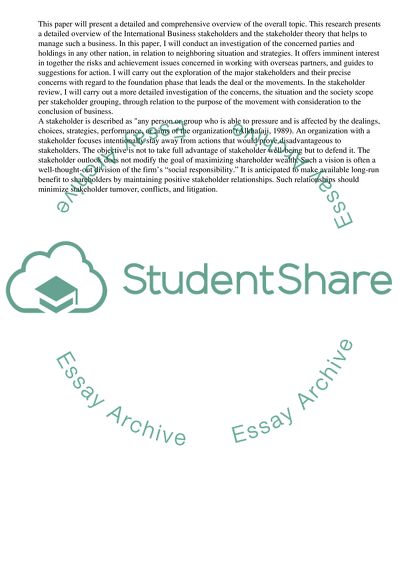Cite this document
(The Role of Stakeholders in the International Business Term Paper, n.d.)
The Role of Stakeholders in the International Business Term Paper. Retrieved from https://studentshare.org/business/1720458-define-who-are-the-stakeholders-in-an-international-business-and-does-stakeholder-theory-help-manage-such-a-business
The Role of Stakeholders in the International Business Term Paper. Retrieved from https://studentshare.org/business/1720458-define-who-are-the-stakeholders-in-an-international-business-and-does-stakeholder-theory-help-manage-such-a-business
(The Role of Stakeholders in the International Business Term Paper)
The Role of Stakeholders in the International Business Term Paper. https://studentshare.org/business/1720458-define-who-are-the-stakeholders-in-an-international-business-and-does-stakeholder-theory-help-manage-such-a-business.
The Role of Stakeholders in the International Business Term Paper. https://studentshare.org/business/1720458-define-who-are-the-stakeholders-in-an-international-business-and-does-stakeholder-theory-help-manage-such-a-business.
“The Role of Stakeholders in the International Business Term Paper”, n.d. https://studentshare.org/business/1720458-define-who-are-the-stakeholders-in-an-international-business-and-does-stakeholder-theory-help-manage-such-a-business.


